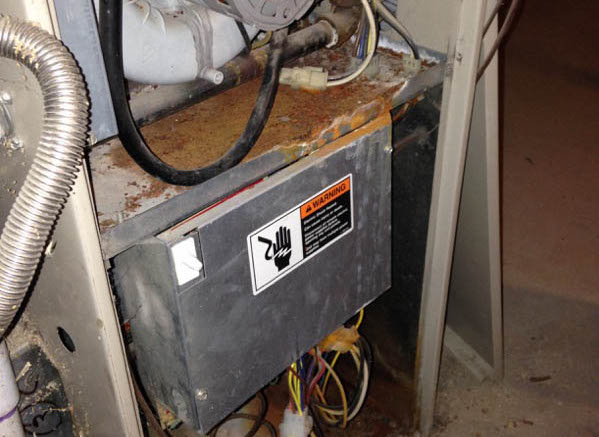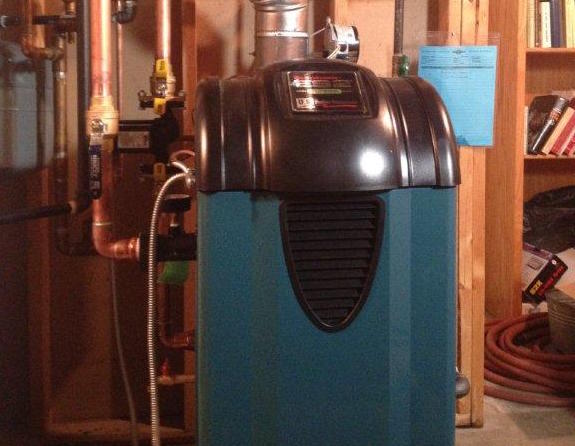Now vs. Later: When Is The Right Time To Replace Your Furnace or Boiler?
We get asked this question a lot! And as you may suspect, while there’s many factors that can influence the decision, much will ride on your personal tendencies. Some homeowners lean towards trying to eke out every last BTU from their heater, just like they might drive their car until the bumpers fall off—while others might place a higher priority on reliability, efficiency and comfort, and might transition to a more modern system sooner. Whatever your disposition, please read on, and we’ll review some of the ‘likely suspects’ that might steer you to a system upgrade.
Safety
There’s one area where there is no room for debate, and that is safety. If your existing heating system puts you in danger, then it must be remedied.
What can cause such an unsafe condition?
Most systems in Colorado are supplied with natural gas, which is dangerous in its natural state, and remains so after being combusted inside your furnace or boiler. Any flaw in the proper deliver of the gas through the system and subsequent exhaust of the byproducts to the outside of your home is an urgent concern.
Your system also has electrical components, which can become brittle over time, or damaged if exposed to water, creating potential fire hazards. We’ve probably all heard news stories about families overtaken by carbon monoxide poisoning, or homes damaged by a heating system fire. These are rare occurrences, and should not be cause for undue alarm. But they also should be part of your awareness.
Finding a situation such as these, a professional HVAC tech will likely disable the unit so that it cannot be operated by mistake, and then walk you through your options to bring it back to a safe condition. If placed in that situation, be attentive to the choices and make sure you understand and are comfortable with the information presented. If you’re dealing with a professional, your decision should not feel uncomfortable. If so, don’t hesitate to seek a second opinion!

Poor Track Record?
Imagine your heater still has plenty of serviceable life left in it, but you experience one failure after another. Over the past 35-plus years, we’ve come across and even installed some systems that seemed good on paper, and were very popular, but in practice just didn’t make the grade.
Poor reliability. Even if the problematic part or design is relatively easy and affordable to fix, you are still faced with the question of how many times during the winter you’re willing to come home to a 40 degree home. Again, with the aid of a professional HVAC contractor, a fully informed customer will be able to make an educated decision on how best to proceed!
Too Expensive To Fix
In some cases, the cost of repairs dictates that the time has come. If you have a system approaching its normal design life (usually around 20 years), say 15 years old, and you’re facing significant repair costs, investing that money in a new system might just make more sense.
Even if your system isn’t quite that old, if the costs are high enough, or your existing system isn’t working wonders for you, it might make more sense to replace than repair. And, that leads in nicely to the next reason you might consider replacement…
Comfort and Design Improvements!
Ready for an inside tip? New equipment is better than old equipment! OK, that’s not exactly expert info. Today, you can still purchase a basic, same-as-it-was-twenty-years-ago system. But there are a lot of better performing options now and they are well worth the added cost. In addition, when installed by an experienced professional, there are also better techniques for sizing and installing equipment than were generally employed in the past, so that you can take full advantage of that upgraded system.
Multistage Systems
Regarding equipment, most existing systems, especially ones older than ten years, are of a single-stage design. Meaning, they are 100% on at full speed, or they are off.
Imagine the uncomfortable ride you’d experience in a car that went from zero to sixty MPH immediately, and then right back to zero again. That’s kind of like what you get with a single stage heating system. It’s louder than necessary, with wide swings in temperature, and because of relatively short run times, this gives your humidification and air filtration systems less chance to succeed.
With modern multistage designs (two-stage and modulating equipment), the heat output is more regulated. The system makes less noise while in lower stages and the temperature is held within a tighter band of comfort. The longer run time allows your humidifier and air cleaner more time to do their work.
A home’s ability to heat comfortably is attributable to the ducts (furnace) or pipes (boiler) that deliver the heat, and most of that system is not typically replaced when you get a new furnace or boiler. However, multistage equipment can still make a big difference!
Professional Installation
A professional installation can also make a huge difference. The new equipment must be properly sized, and believe it or not, bigger is usually not better. Most older systems were often oversized. A properly sized system will be quieter and more comfortable.
Proper mechanical connections are also critical. Often, the ducts or water pipes connecting the furnace or boiler to its delivery system were poorly designed, resulting in a constrained flow of air or water. Relatively simple design adjustments made while the old equipment is removed can make a big improvement in heat delivery, with noticeable advances in comfort and performance. You should be aware that many installation companies still just ‘pull out the old one and stick in the new one.’ That simply won’t do!

Age
When an older furnace or boiler is well beyond its typical lifespan, say, 20 to 30 years old, even if it appears to be working nicely, consider ‘getting it’ before it gets you. Familiar with the term, “on borrowed time?” It’s like that flat tire you got at the worst possible time. Need we say more?
Utility Bills Getting Your Goat?
Is your furnace costing you more to operate than you’d like? Or, do you like the idea of reducing your carbon footprint? If so, consider researching ways to reduce your heating load and therefore, your utility bills. More insulation, new windows, and sealing up leaks can all help cut down on heat consumption.
Heating systems with efficiencies as high as 98% are also available, which is quite a jump from the 80% efficiency or less of many older systems. A highly efficient system isn’t going to pay for itself in a couple years, but as the years pass, the investment will continue to pay dividends.
In the Denver and Boulder, Colorado area, contact Save Home Heat Company for honest, professional service for your central heating system, and to obtain recommendations that are in the best interests of you and your family, your future plans, and is also the best fit for your home.




